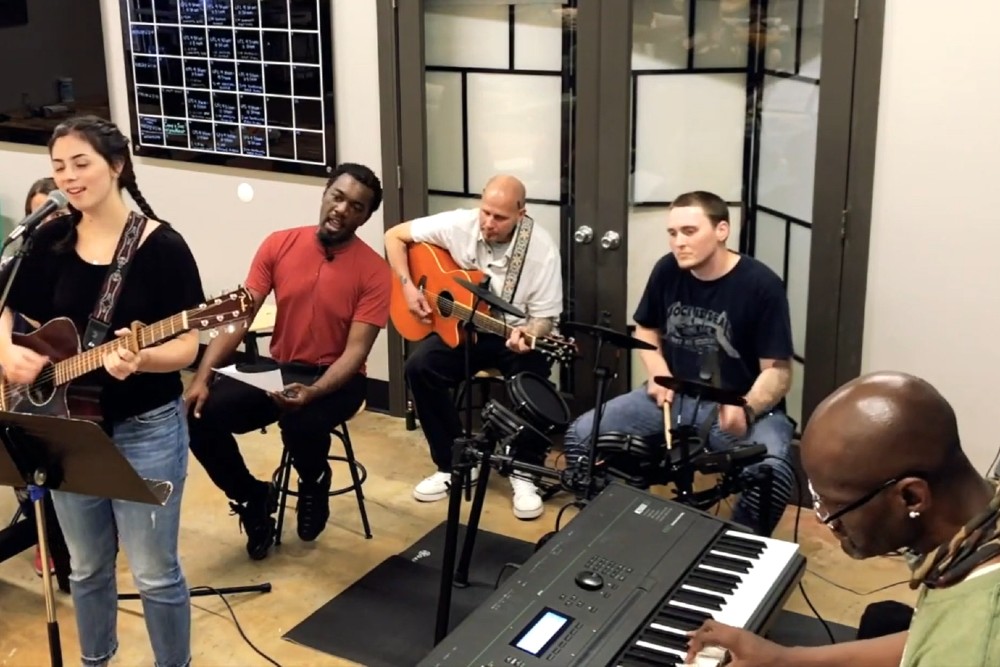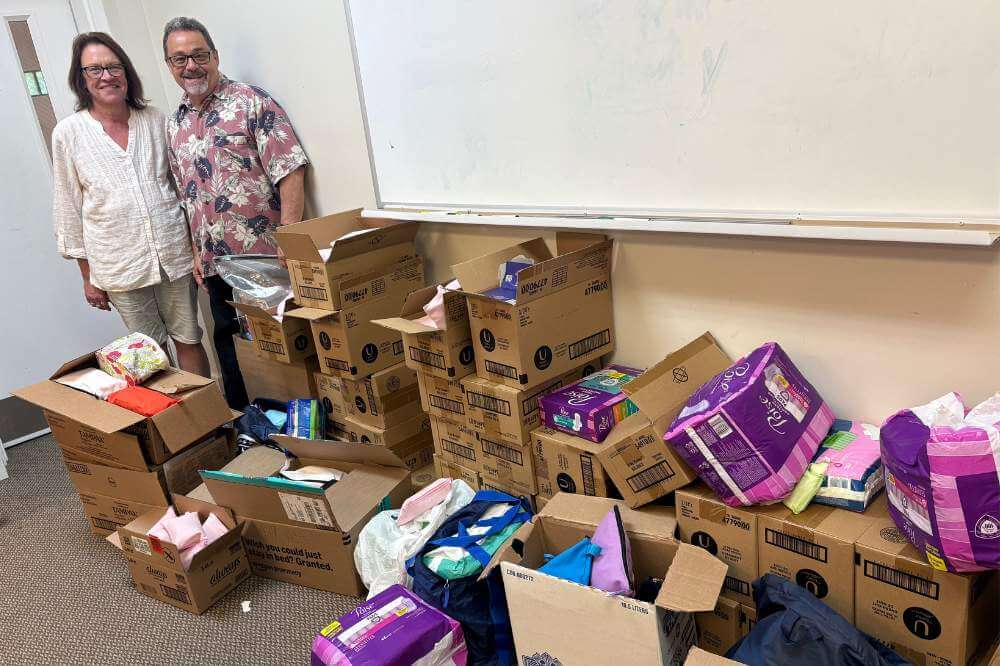This year’s NC Synod Assembly celebrated collaboration between the Moravian and Lutheran churches, a relationship as old as the denominations themselves.
The religious movement that would become the Moravian church started with Jan Hus, a Church reformer who strongly influenced Martin Luther and predated him by 100 years. In the 18th century, followers of this Hussite movement known as the Bohemian Brethren fled religious persecution in Moravia and found haven in Germany on the estate of Nikolaus Ludwig von Zinzendorf, a nobleman raised in the Lutheran tradition. There the movement grew and flourished, and Count von Zinzendorf became an early bishop in the Moravian church.
Moravians arrived in North Carolina in 1753 and settled on a 100,000-acre tract of land that they purchased in the Piedmont, which now includes the city of Winston-Salem. The Lutheran presence in North Carolina began roughly around the same time, and the histories of the two churches have been intertwined since.
More than two centuries later in 1999, the Moravian Church in America and the ELCA became full communion partners. Moravians and Lutherans continue their long legacy of collaboration today, which was highlighted at Synod Assembly.
The Assembly received a keynote address from the Rev. David Guthrie, president of the Provincial Elders’ Conference for the Moravian Church Southern Province. The Southern Province consists of 14,000 members, 53 congregations, nine fellowships, and five emerging ministries.
“I have to give credit to North Carolina Lutherans for sparking my thinking about collaboration more than 15 years ago,” President Guthrie said. When Moravians wanted to launch a response to the damage of Hurricane Katrina on the Gulf Coast, he reached out to Lutheran Disaster Response through the NC Synod office which helped equip and support 1,000 Moravians to travel to the coast in emergency work teams. “It was amazing, and we literally could not have done it without you,” he said.
President Guthrie emphasized his belief that the future of the church is not in singular heroic acts, but in mutuality and partnership. And he acknowledged that collaboration requires the risk that comes with trying something new. “Collaboration resists what are sometimes called the seven last words of the church: we’ve never done it that way before,” he said. “It thrives on the seven first words of the church: let’s try this and see what happens.”
In his reflections, Bishop Tim Smith agreed. “I resonate with President Guthrie in the realization that we need to be willing to take risks for the sake of the Gospel. We Lutherans know that better than anyone. The freedom of the Gospel allows us to risk, even to mess up. What if? Let’s try it and see what happens.”
In 2020, that shared vision for partnership and innovation helped birth The Dwelling in Winston-Salem, a mission community among people experiencing homelessness and the only federated ministry of the Moravian Church and the ELCA. On Saturday evening during Synod Assembly, members of The Dwelling helped share the tradition of a Moravian Love Feast service with North Carolina Lutherans.
“If there ever were an age of church competition, that is long since passed,” Bishop Tim said. “Our future really hinges, and I don’t believe I’m exaggerating here, on our partnerships with our full communion partners in particular. When we start a mission congregation among those experiencing homelessness in Winston-Salem, I say, ‘I don’t want to be in Winston-Salem unless we’re doing it with the Moravians.’”
Story Attribution:
Pastor Matt Canniff-Kesecker for the NC Synod

Additional Content
The Dwelling, Winston-Salem (federated Moravian/Lutheran mission congregation)


